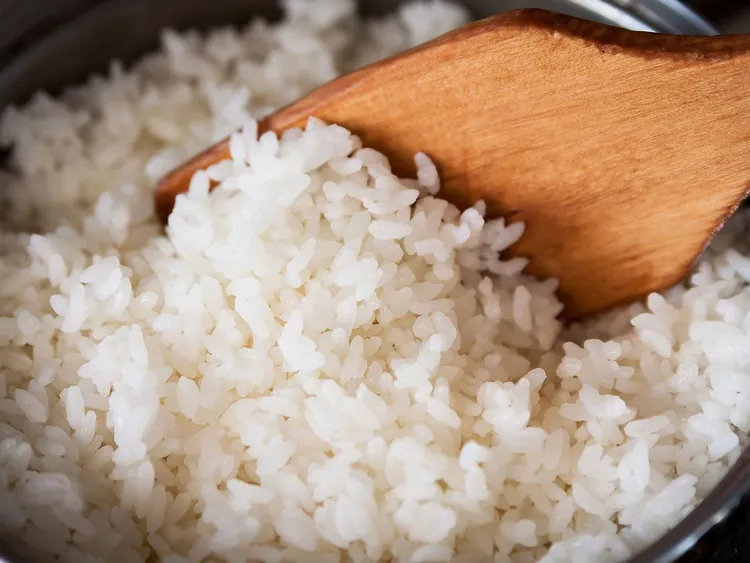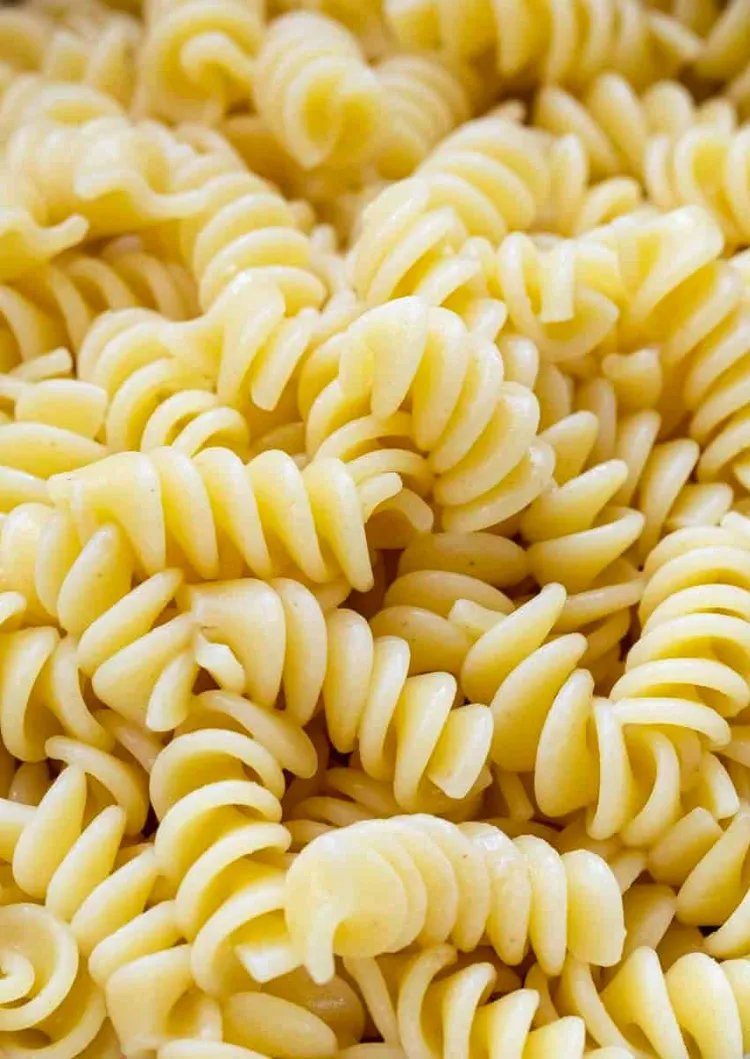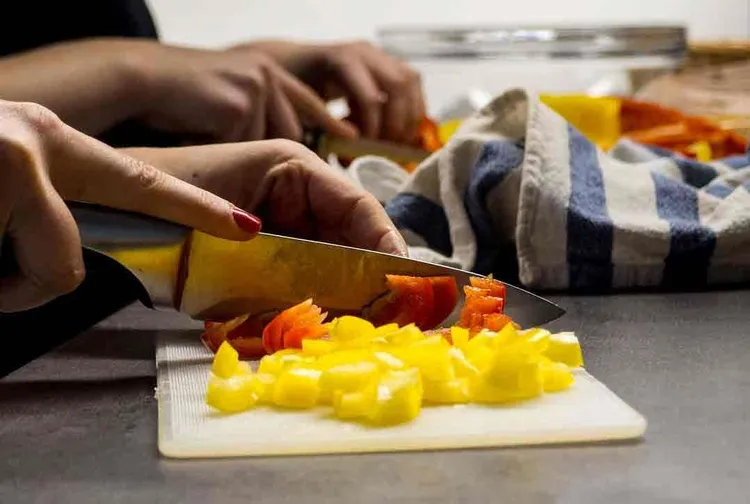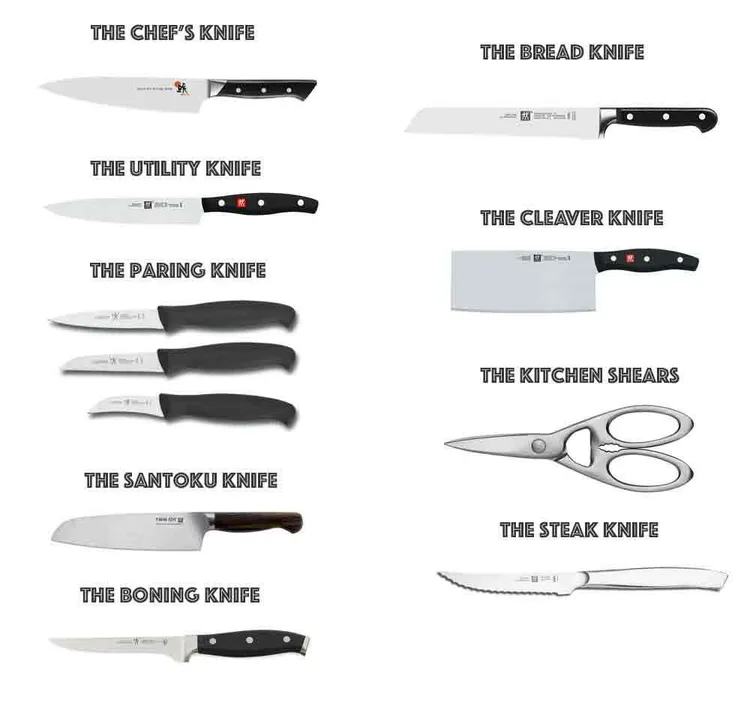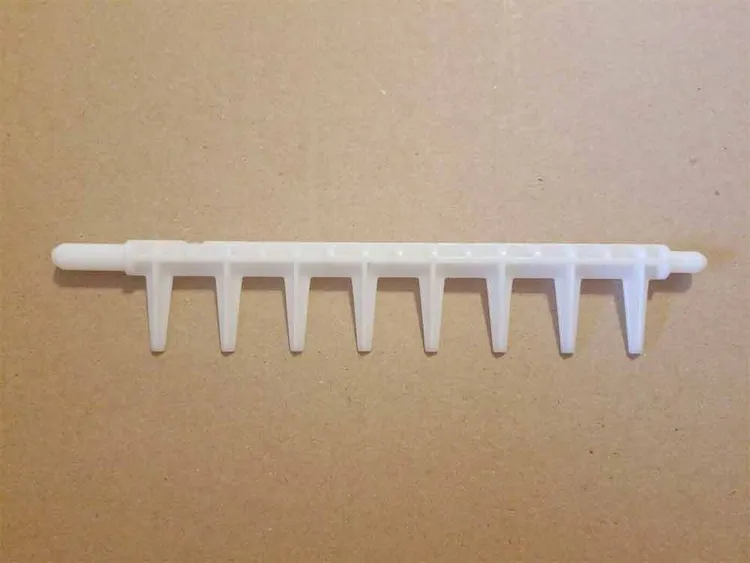Our recommendations are made independently through Research & Testing. We may receive commissions from purchases made via our links.
How To Freeze Corn on the Cob
Looking for information on how to freeze corn on the cob? This short guide will help you out.
Have a few ears of corn lying around that you have no use for? Learning how to freeze corn on the cob will help you solve that problem.
Freezing corn on the cob is relatively simple and quick. There’s no special equipment involved, and you can usually do everything in a couple of hours. Just make sure to follow the instructions carefully.
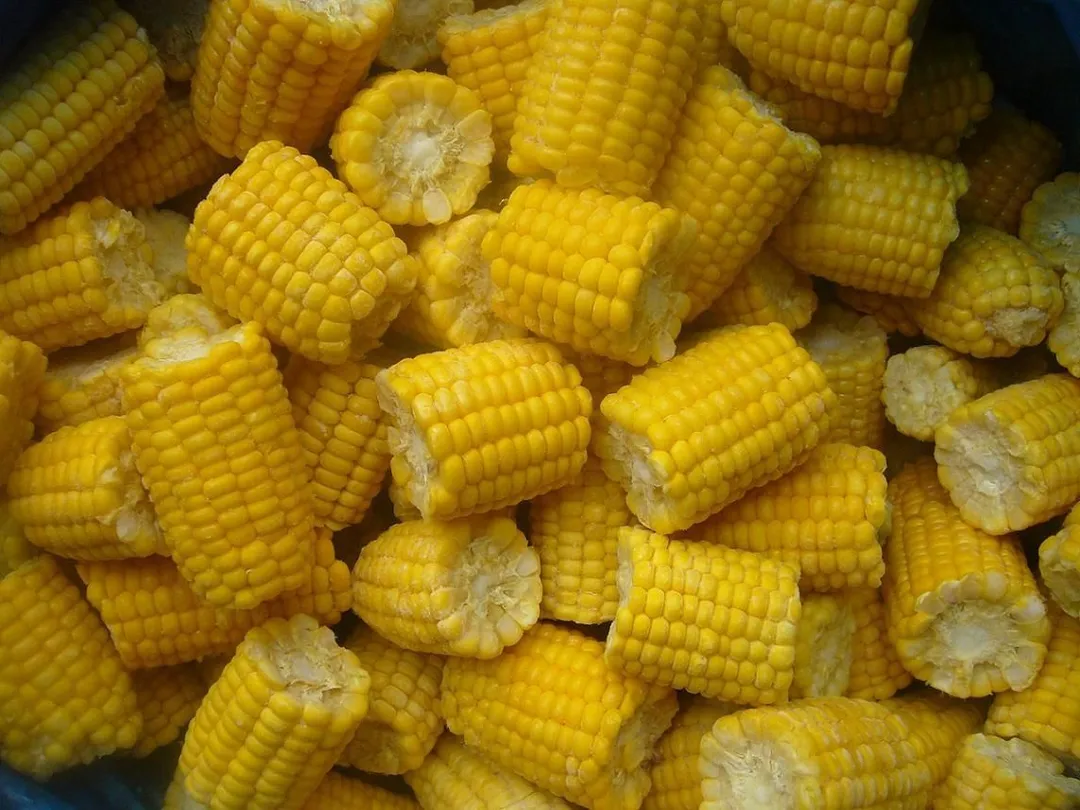
Can You Freeze Corn on the Cob? Is It Safe?
Pre-packaged frozen corn is not at all an unfamiliar sight in supermarket or grocery store aisles. So rest assured that there will be no problem if you want to freeze some corn to save for later.
As for safety, freezing corn is no more dangerous than freezing other veggies or fruits. It all boils down to how well you do it and how well you store it.
As long as you follow all of the steps carefully and store the frozen corn the correct way, you’re safe.
Advantages of Frozen Corn Compared to Fresh Corn
1. Shelf Life
Although fresh corn is the best in terms of taste, texture, and nutritional content, it doesn’t usually last long. Unhusked corn on the cob can last around a week in the refrigerator.
Frozen corn can be kept for several months in the right conditions. When stored at 0°F, it can last forever.
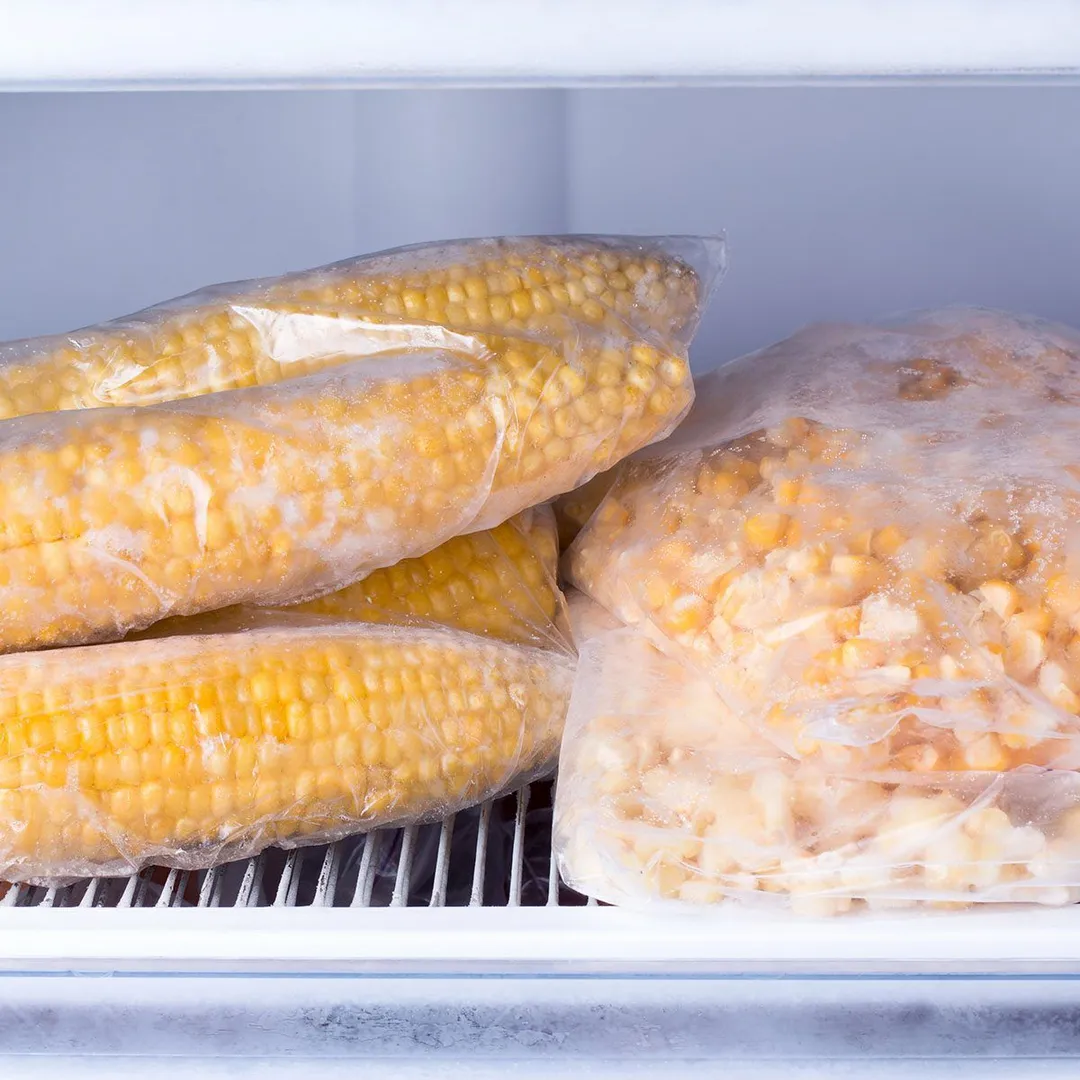
2. Calorie Count
Frozen corn has a significantly lower calorie count than fresh corn.
To be more specific, frozen corn contains 62 calories per cup. Meanwhile, fresh and canned corn contain respectively 132 and 133 calories per cup.
Thus, frozen corn is the perfect dieting food if you are monitoring your weight.
How To Freeze Fresh Corn on the Cob
There are basically two ways to freeze corn on the cob: blanched or unblanched.
1. How To Freeze Blanched Corn on the Cob
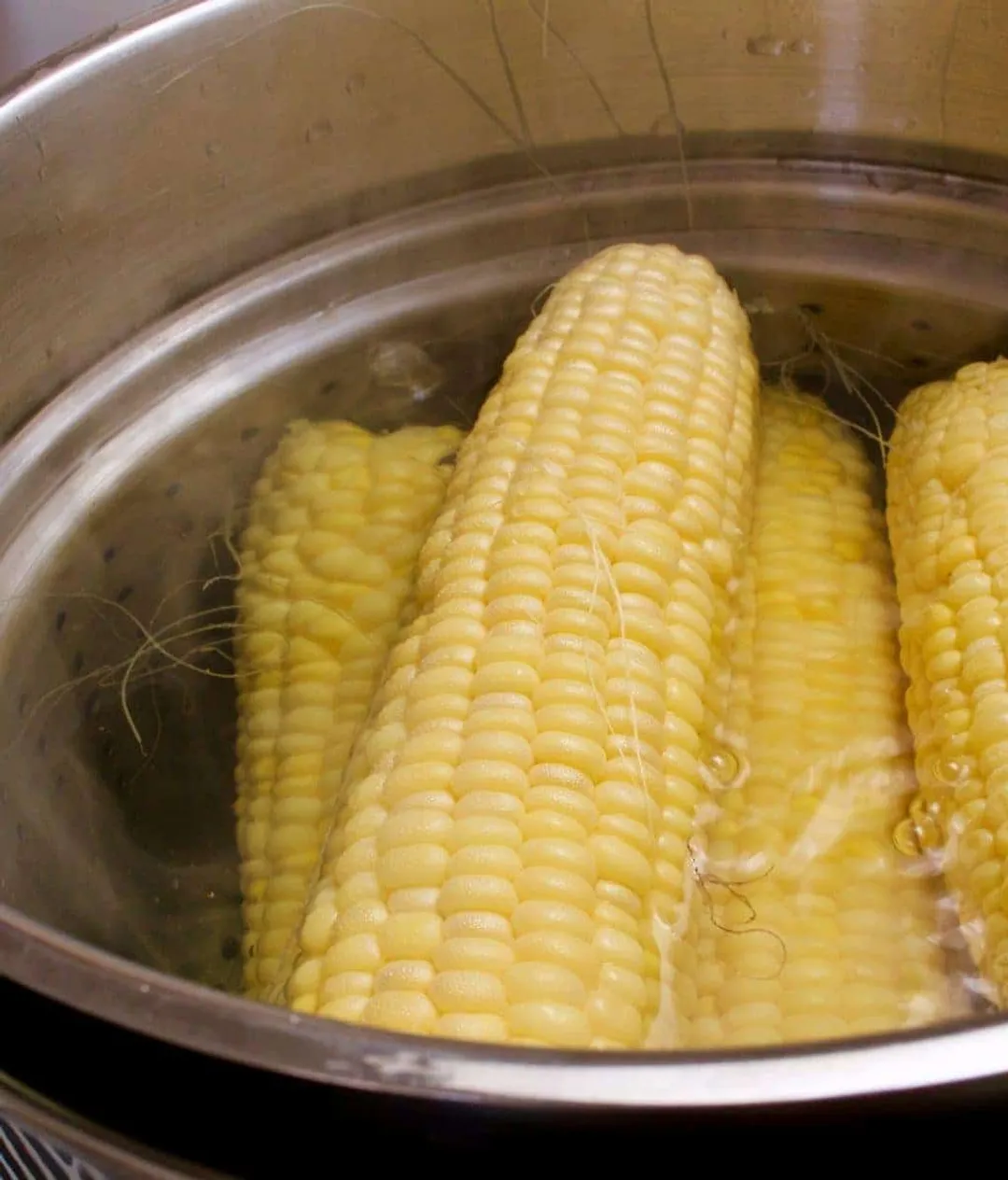
Preparation
The first order of business is to peel the husk off the corn.
After the corn is shucked, remember to remove the stringy silk attached to the corn.
Blanching
Next, fill up a large pot with water and bring it to a boil on the stove.
The blanching process of many veggies and fruits calls for the addition of salt into the water to enhance the flavor. This will not work with corn. The salt is going to toughen up the corn and make it chewy rather than tender.
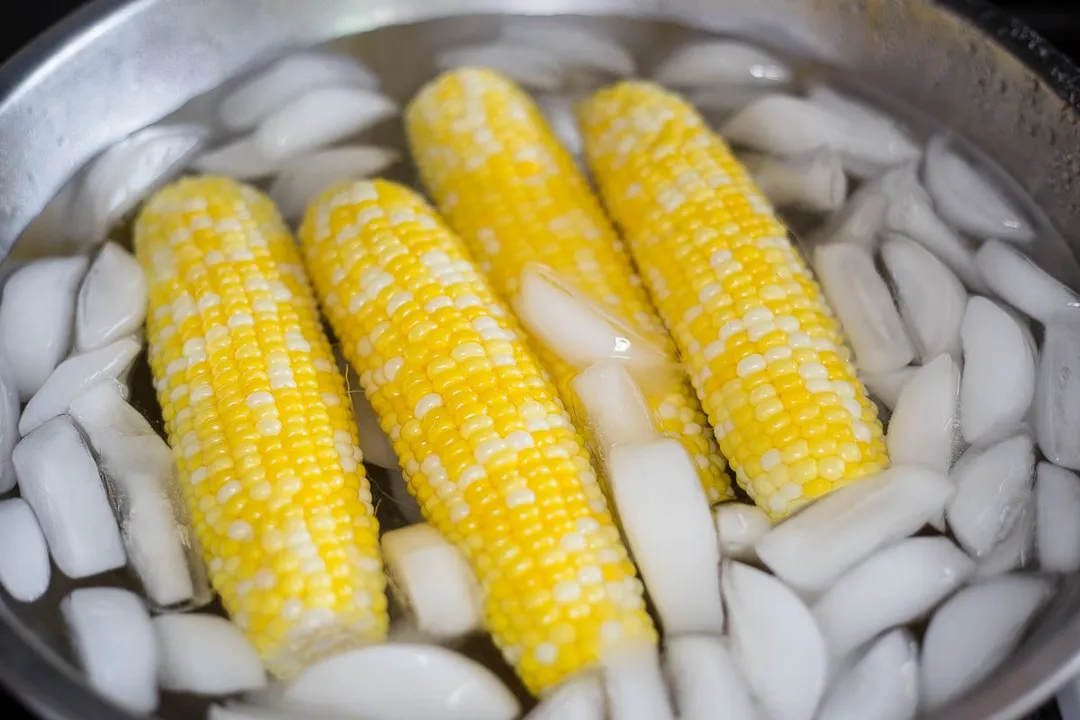
Instead, if you want, you can add a little bit of sugar into the water to sweeten the corn.
While you’re waiting for the water pot to boil, prepare a bowl of ice water. The ice water will cool down the boiled corn later on.
Once the water pot is steaming, drop the corn into the boiling water. Let it cook for around 2 to 3 minutes. You should also turn the corn occasionally in the water to allow it to cook more evenly.
Use a pair of tongs to fish the boiled corn out of the water when the timer starts beeping. Drop the piping hot corn straight into the ice water bowl.
Give the corn another 2 to 3 minutes to cool down. Turn it once every half a minute so that it can cool down more evenly.
Fish the corn out of the ice water bowl and place on a dry paper towel. Make sure that all the corn is fully dried out before you continue to the next step.
Freezing
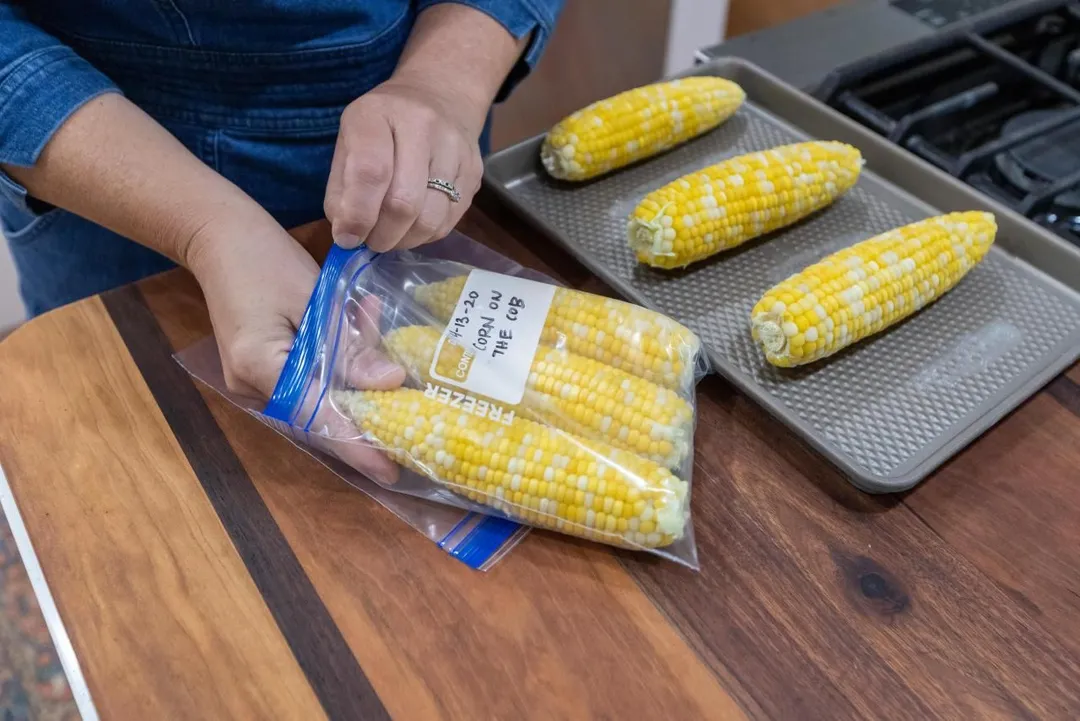
Arrange the blanched corn on a baking sheet in a single layer. Give each cob plenty of space. Ideally, they should not touch or pile up on one another.
Place the baking sheet into the freezer. Cool for about 4 to 5 hours.
When the corn is frozen, take it out and wrap each cob tightly in a layer of plastic wrap. Put the wrapped-up corn into plastic resealable bags.
Squeeze the bags and force out as much air as possible before sealing.
Clearly label each bag with the contents and date of packaging.
Put back into the freezer for storage.
2. How To Freeze Unblanched Corn
Unblanched corn is simpler and quicker.
Just rinse and shuck the corn as normal. Then, instead of blanching, wrap it up in plastic wrap, place it into a freezer bag, and throw it straight into the freezer.
After a couple of hours, take the corn out to inspect it. If it’s satisfactorily frozen, add a label on top of each bag and put back into the freezer for storage.
The taste and texture of unblanched corn are going to suffer a fair bit compared to when it’s blanched. However, the advantage of unblanched corn is that it is able to retain most of the original nutrients.
Blanching removes quite a lot of nutrients from the corn (particularly, Vitamin B and C). So if you freeze your corn unblanched, you can enjoy it’s full nutritional benefits.
How To Freeze Corn on the Cob in the Husk
Storing frozen corn on the cob in the husk can prevent freezer burns from occurring. It’s more convenient, too, since you don’t have to bother with shucking it.
Just like freezing unblanched corn on the cob, freezing corn with the husk on is very simple.
First, you need the freshest corn that you can find with the husk still on. Corn that has been left on the counter for a couple of days won’t do.
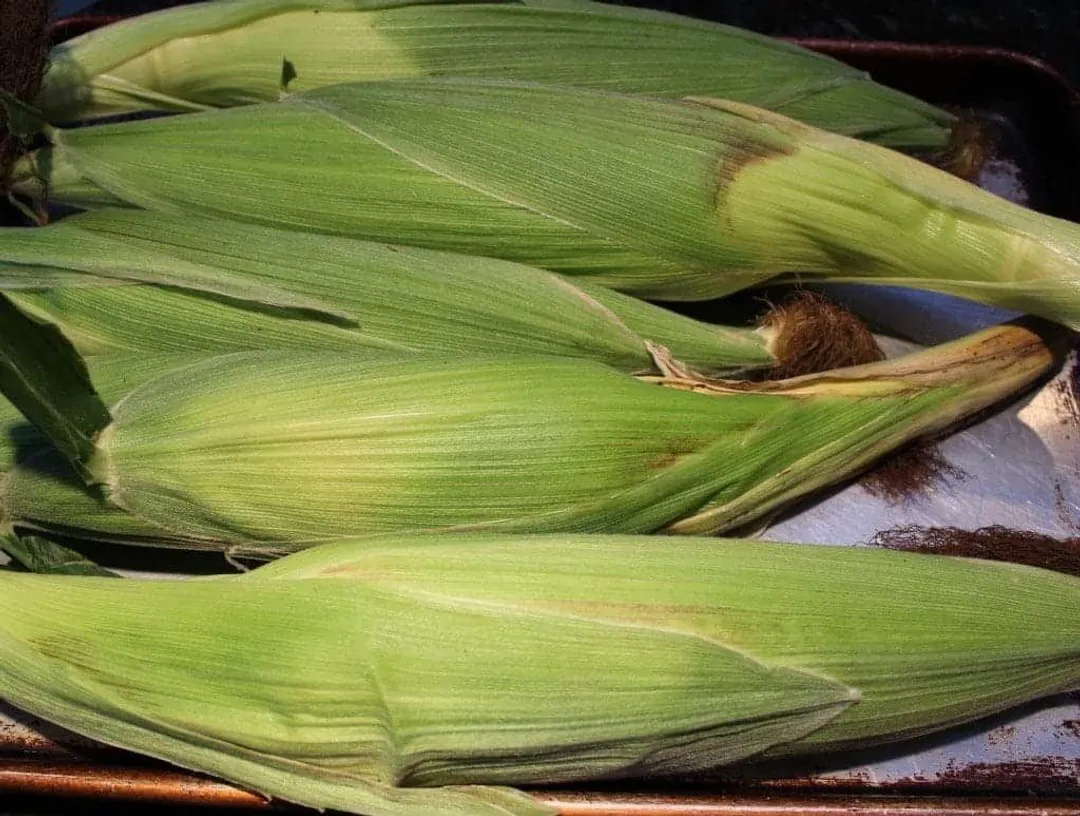
Wrap up the entire ear of corn in plastic wrap. Then, place it into a resealable plastic bag. Remember to squeeze the bag to push out as much air as possible before sealing.
Put it into the freezer for a few hours (about 4 or 5 hours). When finished and you’re satisfied with the result, label the bag and put it back into the freezer.
Unshucked corn on the cob is best for short-term storage. Make sure that you consume it within around 4 months. Otherwise, it will turn soft. The softness isn’t harmful, of course, it’s just not pleasant to eat.
Conclusion
Now that you know how to freeze corn on the cob, go on and stock up your freezer! A couple of bags will ensure that you’re well-stocked through the winter and into the next corn season.
Authors
Luna Regina is an accomplished writer and author who dedicates her career to empowering home cooks and making cooking effortless for everyone. She is the founder of HealthyKitchen101.com and HealthyRecipes101.com, where she works with her team to develop easy, nutritious recipes and help aspiring cooks choose the right kitchen appliances.

